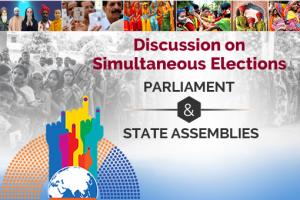- चंडीगढ़ संघ राज्य क्षेत्र
- रचनात्मक क्रियास्थल
- दादरा नगर हवेली केन्द्रीय शासित प्रदेश
- दमन और दीव केन्द्रीय शासित प्रदेश
- प्रशासनिक सुधार और लोक शिकायत विभाग
- जैव प्रौद्योगिकी विभाग
- व्यापार महकमा
- उपभोक्ता मामले विभाग
- औद्योगिक नीति और संवर्धन विभाग
- डाक विभाग
- विज्ञान और प्रौद्योगिकी विभाग
- दूरसंचार विभाग
- डिजिटल भारत
- आर्थिक मामले
- एक भारत श्रेष्ठ भारत
- ऊर्जा संरक्षण
- व्यय प्रबंधन आयोग
- खाद्य सुरक्षा
- गांधी@150
- बालिका शिक्षा
- सरकारी विज्ञापन
- हरित भारत
- अतुल्य भारत!
- इंडिया टेक्सटाइल
- भारतीय रेल
- Indian Space Research Organisation - ISRO
- रोज़गार निर्माण
- LiFE- 21 दिन का चैलेंज
- मन की बात
- मैला ढ़ोने की प्रथा से मुक्त भारत
- पूर्वोत्तर क्षेत्र विकास मंत्रालय
- कृषि और किसान कल्याण मंत्रालय
- रसायन और उर्वरक मंत्रालय
- नागरिक उड्डयन मंत्रालय
- कोयला मंत्रालय
- कारपोरेट कार्य मंत्रालय
- संस्कृति मंत्रालय
- रक्षा मंत्रालय
- पृथ्वी विज्ञान मंत्रालय
- शिक्षा मंत्रालय
- Ministry of Electronics and Information Technology
- पर्यावरण, वन और जलवायु परिवर्तन मंत्रालय
- विदेश मंत्रालय
- वित्त मत्रांलय
- स्वास्थ्य और परिवार कल्याण मंत्रालय
- गृह मंत्रालय
- आवास और शहरी मामलों के मंत्रालय
- सूचना और प्रसारण मंत्रालय
- जल शक्ति मंत्रालय
- कानून और न्याय मंत्रालय
- सूक्ष्म, लघु और मध्यम उद्यम मंत्रालय (MSME)
- पेट्रोलियम और प्राकृतिक गैस मंत्रालय
- ऊर्जा मंत्रालय
- सामाजिक न्याय और अधिकारिता मंत्रालय
- सांख्यिकी एवं कार्यक्रम क्रियान्वयन मंत्रालय
- इस्पात मंत्रालय
- महिला एवं बाल विकास मंत्रालय
- माईगव मूव - वॉलंटियर
- नई शिक्षा नीति
- न्यू इंडिया चैंपियनशिप
- नीति आयोग
- भारत के विकास के लिए एनआरआई
- ओपन फोरम
- PM Live Events
- राजस्व और जीएसटी
- ग्रामीण विकास
- सांसद आदर्श ग्राम योजना
- सक्रिय पंचायत
- कौशल विकास
- स्मार्ट सिटी
- भारत में खेलकूद
- स्वच्छ भारत
- जनजातीय विकास
- जलागम प्रबंधन
- राष्ट्र निर्माण में युवाओं की भागीदारी
Discussion on Simultaneous Elections

आरंभ करने की तिथि :
Sep 07, 2016
अंतिम तिथि :
Oct 16, 2016
00:00 AM IST (GMT +5.30 Hrs)
The desirability of holding simultaneous elections for the Lok Sabha and Vidhan Sabhas has been discussed at various levels. A considered view is that simultaneous elections will ...


Simultaneous elections is a bad idea in my opinion. What if there is a wave of support for one party at a point of time. They will end up sweeping both national and state elections: giving a blank cheque to a single party. Also, voters need to think in two different ways when they go to the election booth (who will do best for my country and who will do best for my legislative constituency). When elections are conducted separately, it is easy to make this judgement, especially forthe uneducated
Sir,
This August-2016 I have a tour from Kolkata to Vizag by my own car. There are number or toll gates are observed in the national highway. They are collecting tolls. As my journey is pre-defined as the number of toll gates are fixed in my journey route, can a system be in place such that I can purchase toll gate ticket in one go and made the journey with less cash handling. It will not only help the onetime users, but also help the business truck users.
Sir,The Natural Gas from Oil India Ltd should be supplied to the Tea Industry in Assam.There has been an irregular Natural Gas supply to the Tea Industry of Assam.Tea industry should be considered as the basic priority sector in supply of natural gas because the small tea growers are dependent.As well as the Tea Industry of Assam provides a lots of employment therefore the Tea Industry should be considered as the basic priority sectory in terms for supply of Pipe Natural Gas (PNG) by Oil India.
#SimultaneousElections #MyGov
An amendment must be brought and it should cleary state that state govt should be helmed by only regional parties and centre govt should be be done by central political party only. There should be no coalition in the central govt. Whereas state govta may have it.
The election should be simultaneously held to save the resources and time.
Well, though the benefits are genuinely enlisted, I have two major concerns.Firstly, what will happen if a single party wave results in polarisation of voters towards that single party in centre and states alike? This might result in abrogation of federal character of our country. Secondly, the priorities of the central and state level governments are different, as highlighted by subjects in the Centre, State and Concurrent lists of the constitution. How can the election campaign go hand inhand
The Lok sabha & Vidhan Sabha elections must be at a time simultaneously to save 1- The money of Country. 2- Time of people. 3- To prevent the corruption in Election.4- The date must be same of Lok Sabha & Vidhan Sabha.
Few of The most important historical secrets mentioned nowhere in our textbooks in any level of education. Must listen everyone, esp. Civil Services Aspirants. Many thanks.
https://www.youtube.com/watch?v=iPib4DMBvqc
Yes, both parliament & state elections should be conduct simultaneously,
It Reduces the expenditure of election commission of india, & by the way model conduct should implement strictly.
Elections of Parliament and states must be conducted at the simultaneously. This might help the ruling parties to implement the policies and decision making.